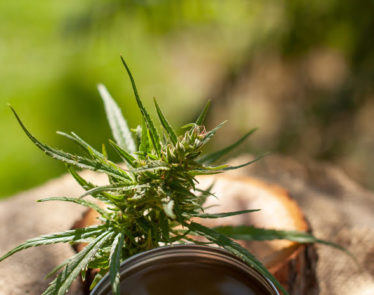
It's easy to get excited over something shiny and new. Everyone's felt that longing for a new phone, a new car, a new boyfriend or girlfriend—even when they've got a perfectly good one sitting at home. It's no different for traders on the stock market. Those who invest in cannabis companies can be especially susceptible to dropping everything just to buy shares in that young, upstart firm generating a lot of buzz.
But this leads investors to make one of the classic pot stock blunders: selling too early.
Investing in cannabis companies typically means investing in long-term growth. This is, after all, an industry just getting on its feet, and while there's still a lot of growth to look forward to, bubbles inevitably burst.
When that happens, most of the already established cannabis companies will be just fine. It's the little guys—the guys who got in too late—who will fold. Many of them simply won't have the infrastructure to weather the storm, and as they give up their stakes in the industry, the big guys will still be around to scoop up the pieces.
Big Cannabis Companies Can Get Licenses More Easily
In the cannabis industry, "infrastructure" includes things as seemingly simple as cultivation licenses. In Canada, cannabis licenses can be notoriously difficult to obtain. Of the 1,630 applications to grow or sell licensed medicinal cannabis submitted to Health Canada by March 31, 2019, the regulatory body only approved a scant 43 of them.
This, of course, has led to fears of supply shortages throughout the cannabis sector. In order to help alleviate these shortages, and to address the extensive bottleneck of applications, Health Canada recently made changes to its licensing process.
In a move that further supports established cannabis companies over upstarts, the biggest change is that applicants must now build a facility before trying to get a license. This applies to companies hoping to cultivate, process, or sell the plant.
>> Curaleaf Stock Soars to One Month High on Acquisition of GR Companies
New Regulations are a "Game Changer"
Prior to this, companies could stagger their agricultural, manufacturing, and retail plans. Knowing that it takes months for Health Canada to approve a license, they could gather investment capital while they wait for approval, only breaking ground on a facility after government regulators have given them the go-ahead. Now that the regulations require a fully-built facility, new entrants to the sector will have to gather a lot more speculative capital before they can seriously get started.
“Raising capital has been challenging, and this is going to make it even more challenging,” said Deepak Anand, chief executive of global cannabis company Materia Ventures. “I think it really disincentivizes micro-cultivators and processors to be setting up and applying for licensing."
Meanwhile, well-established and cash-rich cannabis companies like Canopy Growth Corporation (TSX:WEED) (NYSE:CGC) and Aurora Cannabis Inc. (TSX:ACB) (NYSE:ACB) will have a much easier time getting licenses for new facilities.
Canopy got its most recent license in March for a New Brunswick facility that can annually produce 5,000 kgs of product. And, just days ago, Aurora received two licenses from Health Canada for outdoor cultivation. Both corporations saw their stock jump when the news was announced, and both are now better positioned to dominate the market amidst potential shortages.
Cannabis lawyer Matt Maurer called the new regulations a "game changer." He told Bloomberg that most of the facilities are going to run between $30 or $40 million. That's enough to kill a lot of young cannabis companies in their tracks.
The Big Companies Will Keep Getting Bigger
Just because there's a lot of talk about a new cannabis company, there's no guarantee that it will be able to gather the capital and navigate the regulations needed to become a success. The extensive cannabis industry graveyard—featuring literally dozens of pot stocks that rose quickly and fell hard—is proof enough of that.
Big industry names will always have an edge over newcomers. Cannabis investors should keep that in mind when they find their eyes starting to stray from something reliable towards a hot new commodity. After all, why go out for burgers when you've got steak at home?
>> Read More Investing & Finance News
Featured image: DepositPhotos © stockwerk-fotodesign












